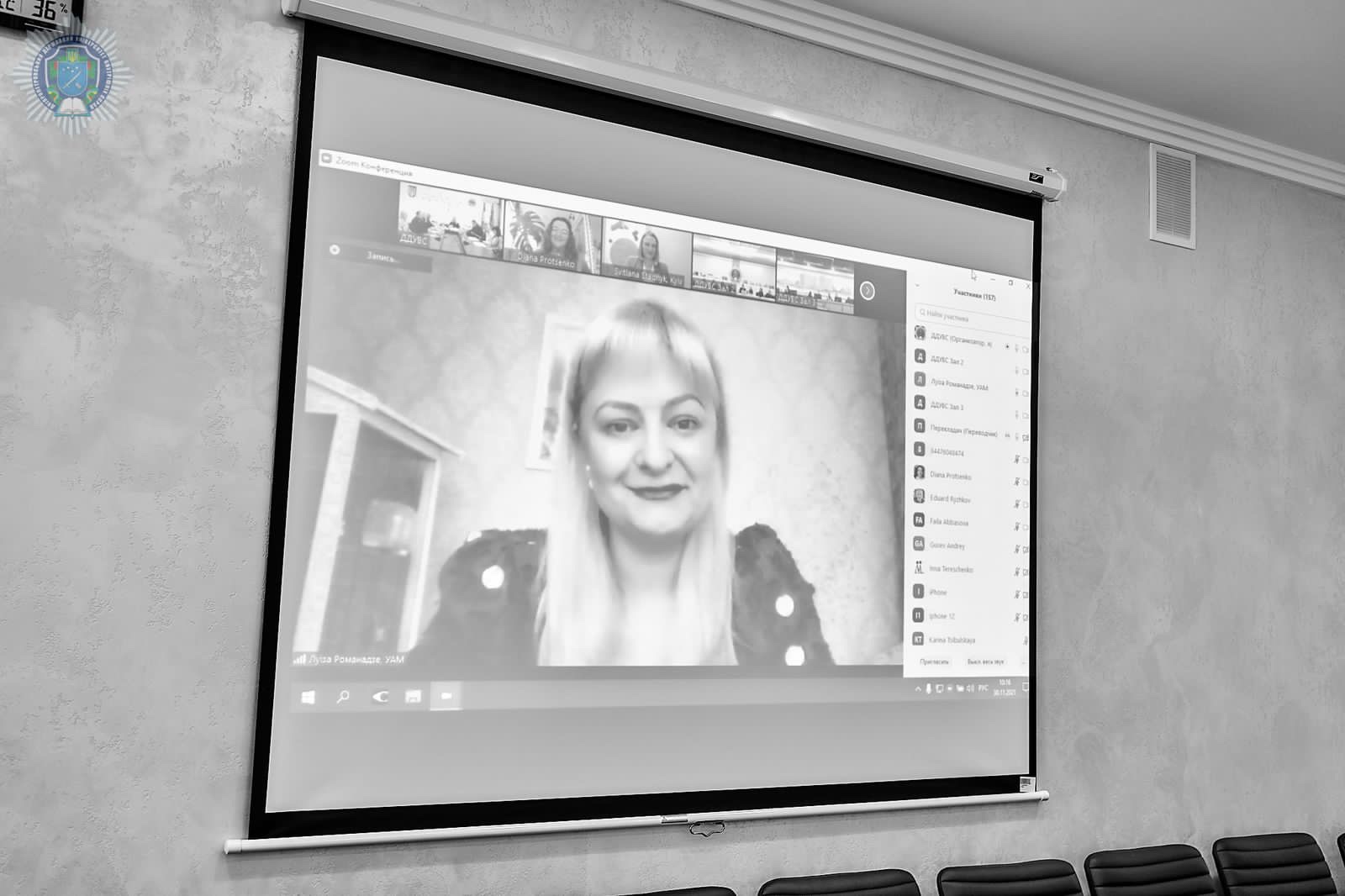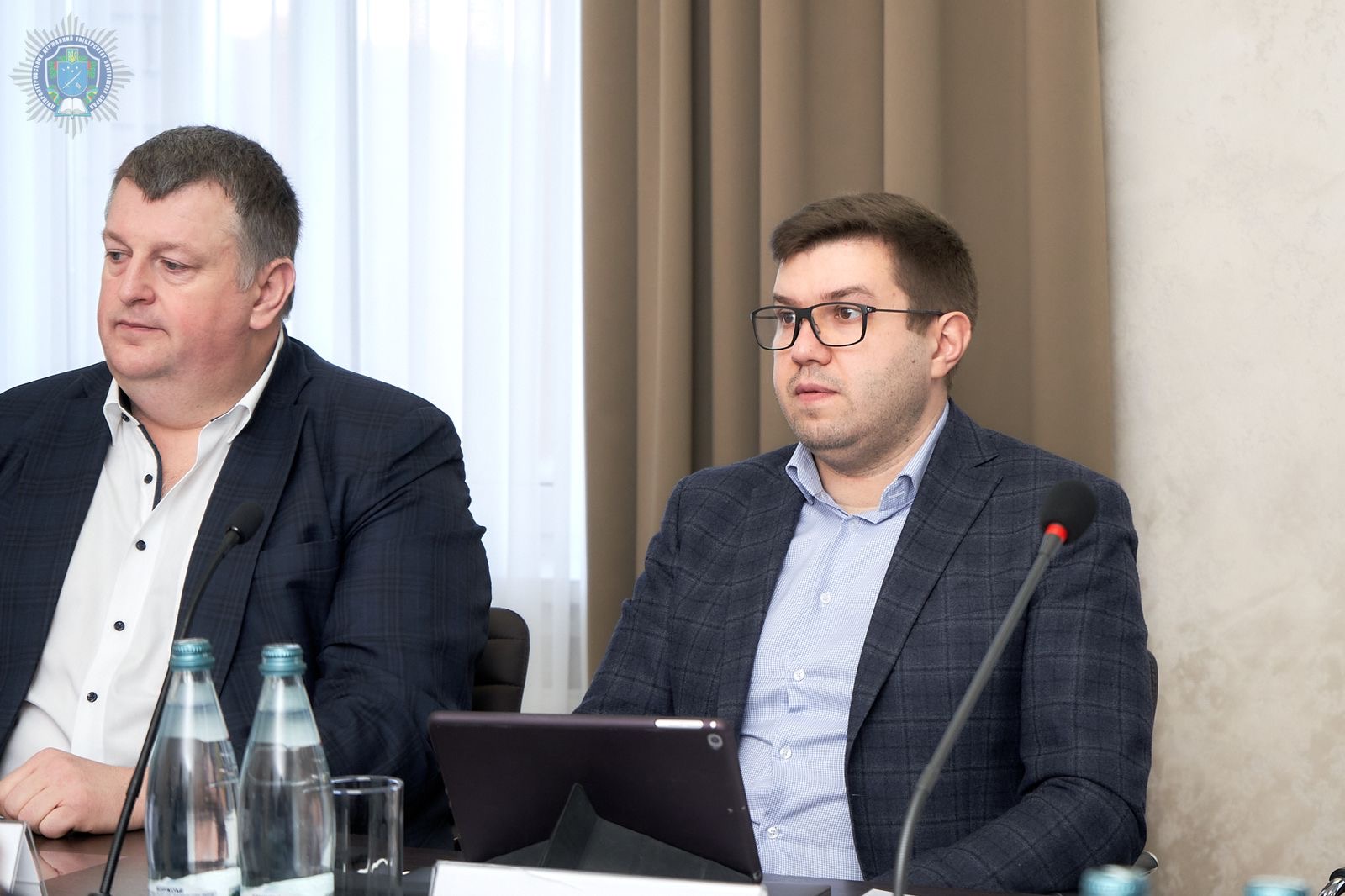ON NOVEMBER 30, THE DNIPRO STATE UNIVERSITY OF INTERNAL AFFAIRS HOSTED AN INTERNATIONAL SCIENTIFIC AND PRACTICAL CONFERENCE “MEDIATION AS A WAY TO RESOLVE PRIVATE AND PUBLIC LAW DISPUTES”.
ONE OF THE CO-ORGANIZERS OF THE EVENT WAS THE DNIPRO REGIONAL COUNCIL FOR JUSTICE REFORM (RJC), SUPPORTED BY THE EU PROJECT “PRAVO-JUSTICE”.
“The adoption of the law on mediation has raised many questions: what to do next, how to implement it effectively? The EU Pravo-Justice Project will actively support the development of the mediation institution in Ukraine.
And one of these priorities is to develop an article-by-article explanatory commentary to the law so that lawyers and citizens understand its logic and apply it correctly.” – said Oksana Tsymbrivska, Chief National Expert of the EU Law-Justice Project, Justice Sector Policy and Coordination component.

In her speech , Luiza Romanadze, attorney, mediator, PhD, President of the Ukrainian Academy of Mediation, expert of the Pravo-Justice Project, focused on the main provisions of the Law “On Mediation”, which takes into account the specifics of the almost 30-year formation of mediation in Ukraine and is designed to create the most favorable conditions for its spread. “Adoption of the law on mediation is not enough to relieve the judicial system. We need systemic changes and a large public awareness campaign, because people are simply unaware of the existence of such a procedure and the opportunities it provides,” said Luiza Romanadze.

Oleksiy Savchuk, coordinator of the Dnipropetrovs’k Regional Council for Justice Reform, spoke about the relevance of alternative conflict resolution in commercial disputes: “Mediation will reduce the burden on the judicial system and improve the reputation of the parties, while litigation may forever remain a negative stain in the court register.”Andriy Ryshchenko, judge of the Dnipro District Administrative Court, coordinator of the Dnipro RRDC, spoke about the findings of the EU Pravo-Justice Project’s study on the possibility of using mediation in administrative disputes, the report of which is published on the Project’s website.
Among other things, the study identified a number of problems in administrative disputes that can be resolved through mediation:
- distrust of state institutions due to the lack of dialog between the citizen and the state;
- failure to comply with court decisions, especially binding ones;
- significant time and cost of the court proceedings.
Based on the results of the analysis, the Project’s experts identified categories of disputes in which mediation is potentially possible after the entry into force of the Law on Administrative Procedure, as well as models for referring such cases to mediation. “Taking into account the specifics of the functions of state bodies, it is possible to introduce a judicial or court model of mediation in administrative disputes with the participation of persons who have additional competence in the field of law and understand the work of state bodies, or a mediator to whom such a case should be referred, “ said Andriy Ryshchenko.

The report of Svitlana Sergeyeva, lawyer, mediator, member of the Board of the Ukrainian Bar Association, expert of the Pravo-Justice Project, concerned the study of international and national experts of the EU Project, which recommended the gradual and balanced introduction of mandatory information and evaluation meetings with a mediator – to inform about mediation, its features, and to assess the feasibility of using mediation.
In particular, this is relevant for the following categories of cases:
- civil disputes arising from family relations;
- commercial disputes arising from corporate relations;
- civil and commercial disputes arising from transactions;
- other categories of civil and commercial disputes upon the recommendation of judges.
“The presence of a conflict (dispute) among the founders of a business has a negative impact on the business and can lead not only to a decrease in profits, but even to the destruction of the business itself in the future. In addition, the dissemination of information about the existence of such a dispute can be used by competitors. That is why confidential mediation is a reputation-safe and realistic alternative to litigation for businesses. The introduction of information and evaluation meetings in this category of disputes before going to court is a good way to create a culture of out-of-court corporate dispute resolution.”, – says Svetlana Sergeyeva.
For more information: In 2020-2021, the EU Pravo-Justice Project discussed the use of mediation in administrative, commercial and civil proceedings, as well as an in-depth analysis of the legislative and institutional gaps in the implementation of mediation in Ukraine in various areas of law.
Based on the results, the Project prepared reports on the categories of cases in administrative, civil and commercial proceedings where alternative dispute resolution is appropriate.

